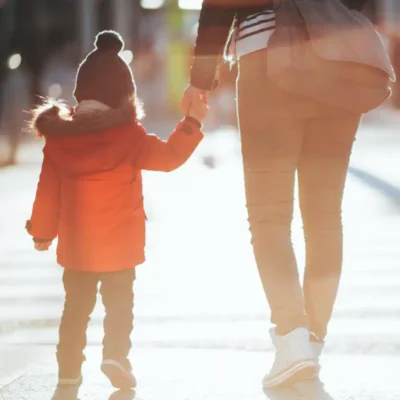Gender-based violence
Gender-based violence
Working to end gender-based violence
West Coast LEAF fights for all people to be safe from violence and to make their own decisions about their bodies, lives, sexuality, and gender. Gender-based violence describes any form of abuse, assault, or harassment that is based on gendered power differences. It is violence inflicted upon someone because of their gender identity, gender expression, or perceived gender. Our vision for a world free of gender-based violence is grounded in a model of care in which survivors can access support, speak their truths, and find community on their own terms.

Women, girls, trans people of all genders, Two-Spirit people, intersex people, gender non-binary people, and gender non-conforming people are disproportionately targeted for gender-based violence. This violence takes many forms including sexual assault, stalking, harassment, and physical, emotional, social and financial abuse, among others. It may manifest as controlling and coercive behaviour, as patterns of escalating abuse, or as specific instances of violence.
Gender-based violence is rooted in patriarchal and misogynistic norms about sexuality and gender, and in colonial, racist, xenophobic, and ableist ideologies. We see this in the appalling frequency and severity of violence that is targeted at Indigenous women, girls, and transgender and Two-Spirit people across Canada, as well as in patterns of gender-based violence targeting people from racialized and religious communities and people with disabilities.
Work in progress
We work to support survivors of gender-based violence by ensuring that they are centered in discussions about systems, reforms and resources and by advocating for survivor-led strategies that are accessible and accountable to them.
We recognize that each survivor has their own path and vision for seeking safety, accountability, and justice. The criminal law system and the family law system have not been safe, viable or meaningful paths for justice for many survivors, especially for Indigenous women, girls, trans and Two-Spirit people, and racialized survivors. Some survivors of gender-based violence will engage with legal processes, while others will not. We support all survivors to take the paths that best align with their needs and goals, while recognizing the inherent limitations in the legal system.
We know how inaccessible, complex, and alienating the legal system can be for survivors of gender-based violence. Investigation and review processes, such as those carried out by an employer, a school, or a regulatory body, are likewise often ill-equipped to address the needs of survivors. West Coast LEAF will continue to work to change systems to make them more supportive and less harmful for survivors of gender-based violence.
Gender-based violence is pervasive in our society, yet it often remains cloaked in a culture of silence, disbelief, shaming, and stigma. Survivors are often made to feel alone, responsible for, or mistaken about their experiences.
We are deeply concerned about the persistence of myths and stereotypes about gender-based violence and the growing backlash against survivors who speak out about their experiences. We continue to advocate for services that are wholistic, survivor-centred, trauma-informed, and culturally safe.
We facilitate workshops that help learners build consent culture, explore the gap between legal and ethical requirements for consent, and learn about non-legal and legal resources and options for survivors of sexual assault. We aim to empower participants to make informed decisions and to think critically about how power imbalances play out in legal systems and in relationships of all kinds.
Take action for justice and equity!

